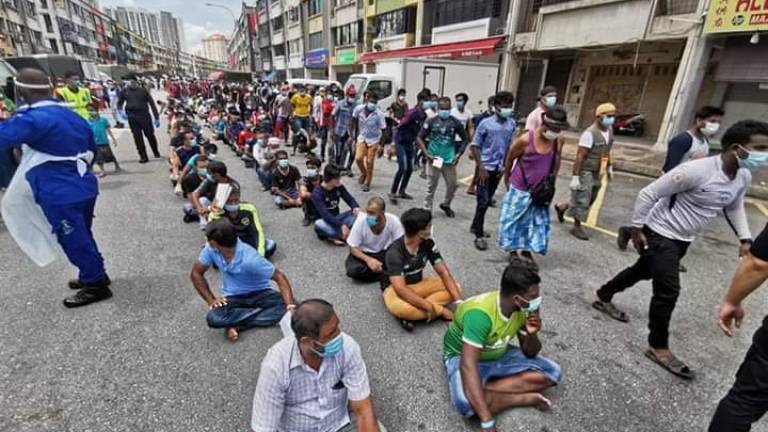FROM as early as the 18th century, migrants were welcomed to our shores. The Indians came in hordes to work in our plantations.
The Chinese too landed in large numbers, together with their secret societies and historical feuds. Even as they fought among themselves, they worked hard in tin mines.
Together, they made Malaysia the top tin producer in the world, a distinction we lost some decades ago when focus shifted to other pursuits.
The migrants eventually branched out into other sectors, mainly small businesses such as provision shops for the Chinese, while the Indians excelled in professional pursuits, such as law and medicine.
Migrants have contributed significantly to the economic development here. Together with the indigenous people, we thrived.
More recently, a new wave of migrants has come, but apart from seeking their fortunes, they are escaping calamities such as natural disasters and wars in their homelands.
The end of the Vietnam War sparked a mass migration of its people across the South China Sea to Malaysia and other Southeast Asian countries. Then, economic necessities forced hundreds of thousands of Indonesians across the Straits of Malacca in search of better opportunities.
We, too, have people coming in from Pakistan and Bangladesh to work in the construction sites, orchards and farms.
Filipino migrants now make up a large proportion of the Sabah population. They, too, have contributed substantially to our economic growth. They take on the 3D – dirty, dangerous and difficult – jobs that we now shun, never mind that many of us are descendants of immigrants who once were doing exactly the same things.
However, little is done to help them lead a decent life. Living quarters for them are cramped, with as many as 20 or more people sharing a flat.
The risk of infectious diseases spreading among people living in such close quarters has become very apparent during the Covid-19 outbreak.
They are faced with other problems too. With many of them being placed in lockdown, they are unable to leave their flats to get provisions. Many have turned to asking strangers to do their grocery shopping for them.
But worse than that is the fact that they are no longer able to continue working, thereby losing their only source of income.
Some have become so desperate that they have had to write home to their families to ask for money – quite a reversal from the reason they are here in Malaysia in the first place.
While we dispense aid to locals also caught in a similar situation, perhaps we should not forget the migrants as well.













